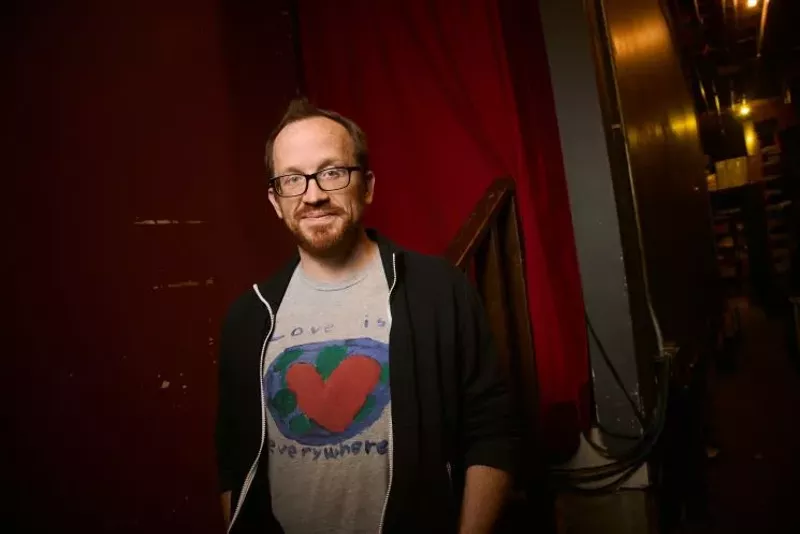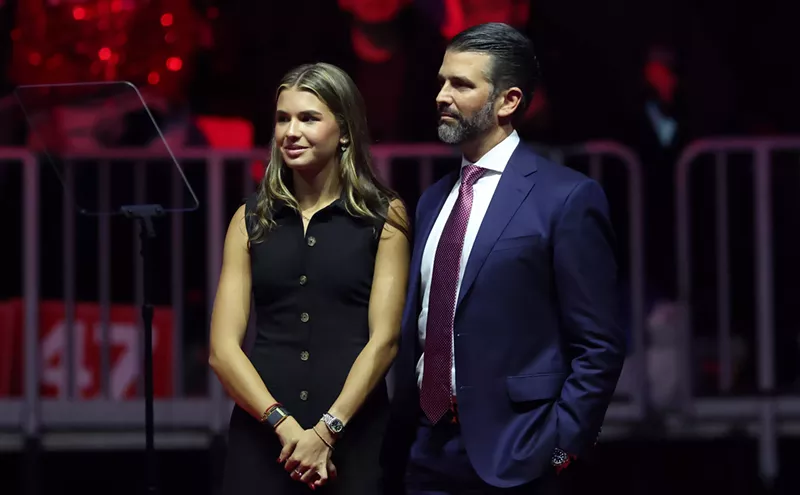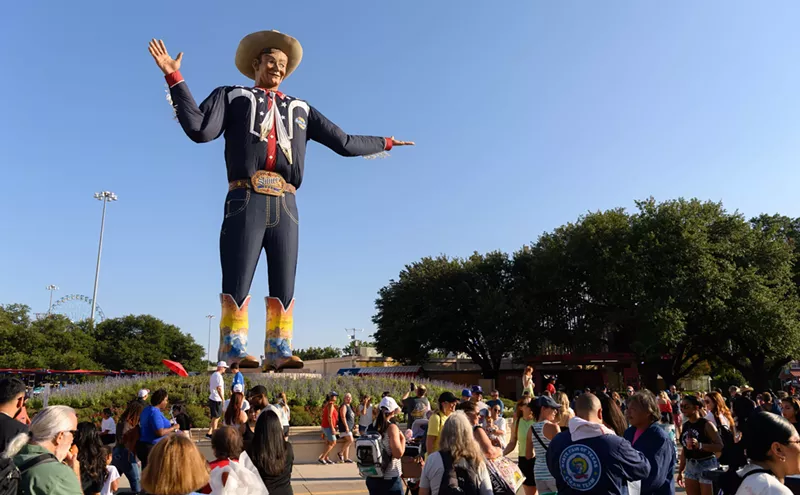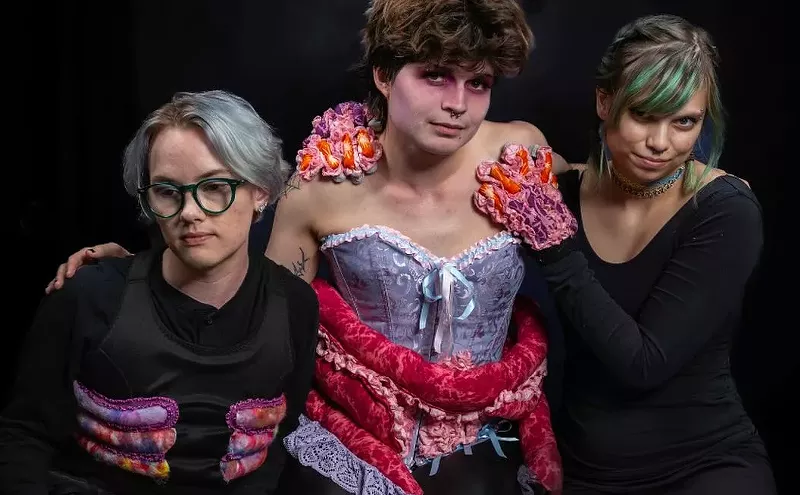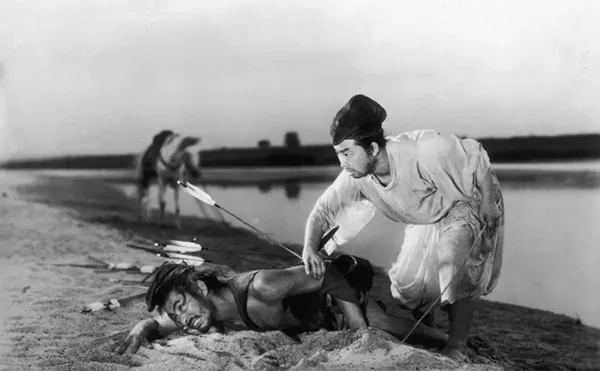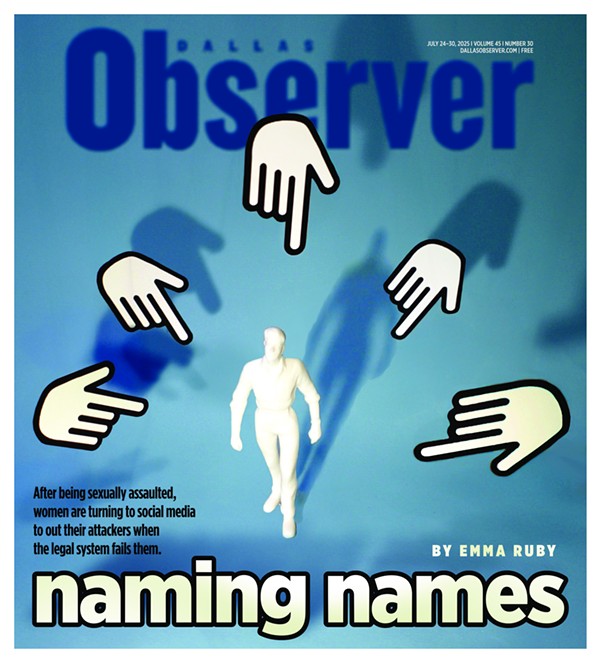Stage fright isn't really a problem for comedian Chris Gethard. It's the time before and after the show that gets to him a whole lot more.
"I started going onstage since I was 19, and I didn't start therapy until I was 32–33," Gethard says. "I sort of have more fright having a normal human conversation than being onstage. In some ways as a performer, I'm kind of lucky, but the other 23 hours a day, that's when my anxiety kicks in."
Gethard paints with his emotions to create comedy canvasses that weave from dark to silly in a freewheeling manner. He's turned that into a successful television, podcasting, acting and comedy career that still has him on the road, including his most recent tour, which will bring him to the Texas Theatre on Friday, Aug. 18. It works because Gethard never bullshits his audience with platitudes. He cares too much about his fans to do that.
"It's always personal," Gethard says. "It's always gonna reflect where I am in life, and my anxieties are going to show up and the fears [I have] about the messed-up world we live in. I'm also a dad, too."
Gethard got his start in improv comedy at the Upright Citizens Brigade theater in New York, just a jump away from his native New Jersey. He developed a freewheeling talk show called The Chris Gethard Show, where he could showcase his strangest ideas for an audience. Part of the fun was watching the concepts struggle or thrive so you could see how Gethard and his guests would handle it.
He moved the show to Manhattan's public access channel, where it gained a global audience and became a Pee Wee's Playhouse for punk-rock loving misfits. The show got picked up for the short-lived cable channel fusion and later spent a memorable season on TruTV.
The brilliance of The Chris Gethard Show's format is that it had none — outside of his sidekick Shannon O'Neill, his loud-as-hell announcer Murf Mayer, a live band fronted by his now-wife Hallie Bulleit and a mysterious aquatic creature known only as The Human Fish. One week they'd be challenging a group of comedians to not laugh or even smile for an entire grueling hour, monitored by a hard-as-nails referee. The next week they'd spend the entire episode with comedians Paul Scheer and Jason Mantzoukas trying to guess something they had hidden in a dumpster. (Spoiler: it was Oscar-nominated actor Paul Giamatti and, yes, he stayed in the dumpster the entire time.)
"I came up going to a lot of punk-rock shows in high school," Gethard says. "They really had that example set for me, the whole do-it-yourself thing."
Gethard said at the top of the dumpster episode that if no one could determine who or what his crew had in the dumpster, he would never reveal it. It may sound cruel to an audience, but failing is part of Gethard's artistic muse. He even wrote a best-selling humor book about the subject in 2018 called Lose Well.
"I'd much rather fail my way than make money doing something I think is weak," Gethard says. "It's not that I don't like money. It's an important thing. I recognize that. I'm very willing to sacrifice being in the rat race if I get to scale things back and do it my way instead."
The success of the show led to memorable roles in films such as Sasha Baron Cohen's The Dictator and the indie comedy hit Don't Think Twice about the absurdity and animosity in improv groups that coaches rarely talk about in class. He also had regular roles on shows Broad City as Ilana Glazer's day-job boss, Todd, and on NBC's The Office as Dwight Schrute's "hitman," Trevor Bortmen. More recently, he's slowed down his on-camera work, preferring to stick more to stage performances and sitting behind the podcast mic. His love for unchained conversation and unstructured formats continues with the Earwolf podcast Beautiful/Anonymous, in which he shoots out a phone number to his followers and takes the first call that gets through. Whoever answers must have a full one-hour conversation with Gethard, and it's led to some fascinating stories about people who've survived bear attacks and airplane crashes, lost loved ones or lived as a closeted furry. The podcast also found its audience and just won a five-season renewal.
Gethard says it's a way to extend the pathos he strove to preserve during The Chris Gethard Show's seven seasons.
"One guy was telling me about what it's like to work in animation and he started laughing and it sounded like a goose and we ended up talking about his laugh," Gethard says. "Part of the show is I never know what's coming and I get blindsided by the content of the show sometimes."
Gethard isn't just seeking freedom with his comedy and podcasts. It's equally important to have that freedom in his own life, especially now that he's a father.
"Things are smaller now," he says. "I make a lot less money. I think the entertainment industry is not a healthy one. There's a lot of unhealthy people and a lot of unhealthy behavior. I'm happy to inhabit my own corner, doing my own shows, write my own jokes, do my own thing. I'm very content with that."

Audio By Carbonatix
[
{
"name": "GPT - Billboard - Slot Inline - Content - Labeled - No Desktop",
"component": "21721571",
"insertPoint": "2",
"requiredCountToDisplay": "2"
},{
"name": "STN Player - Float - Mobile Only ",
"component": "21861991",
"insertPoint": "2",
"requiredCountToDisplay": "2"
},{
"name": "Editor Picks",
"component": "17105533",
"insertPoint": "4",
"requiredCountToDisplay": "1"
},{
"name": "Inline Links",
"component": "18349797",
"insertPoint": "8th",
"startingPoint": 8,
"requiredCountToDisplay": "7",
"maxInsertions": 25
},{
"name": "GPT - 2x Rectangles Desktop, Tower on Mobile - Labeled",
"component": "22608066",
"insertPoint": "8th",
"startingPoint": 8,
"requiredCountToDisplay": "7",
"maxInsertions": 25
},{
"name": "Inline Links",
"component": "18349797",
"insertPoint": "8th",
"startingPoint": 12,
"requiredCountToDisplay": "11",
"maxInsertions": 25
},{
"name": "GPT - Leaderboard to Tower - Slot Auto-select - Labeled",
"component": "17357520",
"insertPoint": "8th",
"startingPoint": 12,
"requiredCountToDisplay": "11",
"maxInsertions": 25
}
]

